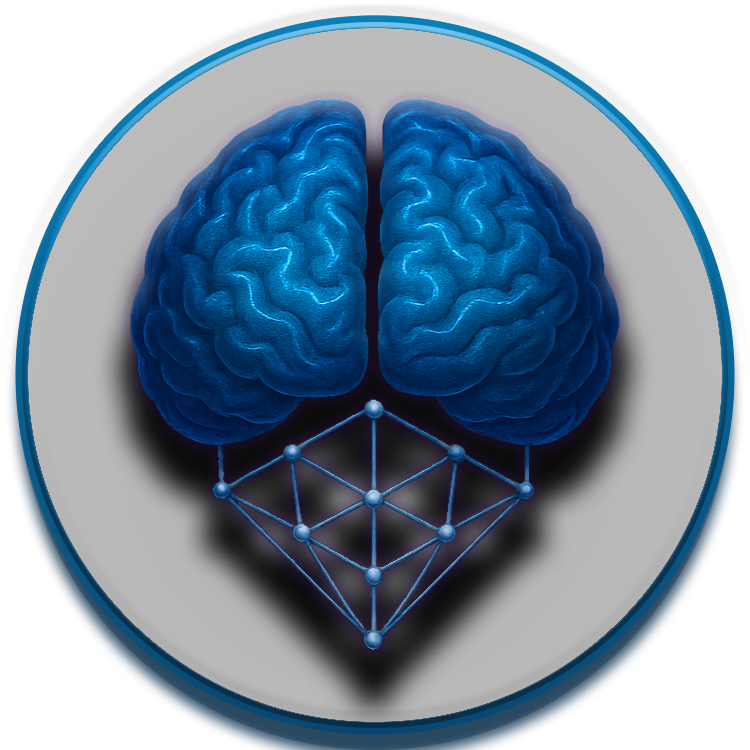
Metacognition System¶
This diagram details the metacognition component of the NeuroCognitive Architecture (NCA) cognitive control system.
%%{init: {'theme': 'dark', 'themeVariables': { 'primaryColor': '#242424', 'primaryTextColor': '#fff', 'primaryBorderColor': '#555', 'lineColor': '#f8f8f8', 'secondaryColor': '#2b2b2b', 'tertiaryColor': '#1a1a1a'}}}%%
graph TB
classDef main fill:#1a1a1a,stroke:#555,color:#fff
classDef component fill:#242424,stroke:#555,color:#fff
classDef subcomponent fill:#2b2b2b,stroke:#555,color:#fff
classDef metacognition fill:#203030,stroke:#555,color:#fff
classDef process fill:#252525,stroke:#555,color:#fff
subgraph MetacognitionSystem["Metacognition System"]
direction TB
class MetacognitionSystem main
subgraph SelfMonitoring["Self-Monitoring"]
direction TB
class SelfMonitoring metacognition
ProcessMonitoring[Process<br>Monitoring] --- StateAwareness[State<br>Awareness]
PerformanceTracking[Performance<br>Tracking] --- ResourceMonitoring[Resource<br>Monitoring]
class ProcessMonitoring,StateAwareness,PerformanceTracking,ResourceMonitoring subcomponent
end
subgraph ReflectionSystem["Reflection System"]
direction TB
class ReflectionSystem metacognition
SelfEvaluation[Self<br>Evaluation] --- ProcessAnalysis[Process<br>Analysis]
HistoricalReview[Historical<br>Review] --- OutcomeAnalysis[Outcome<br>Analysis]
class SelfEvaluation,ProcessAnalysis,HistoricalReview,OutcomeAnalysis subcomponent
end
subgraph ErrorDetection["Error Detection"]
direction TB
class ErrorDetection metacognition
ErrorRecognition[Error<br>Recognition] --- ConflictDetection[Conflict<br>Detection]
ExpectationViolation[Expectation<br>Violation] --- AnomalyDetection[Anomaly<br>Detection]
class ErrorRecognition,ConflictDetection,ExpectationViolation,AnomalyDetection subcomponent
end
subgraph StrategyAdaptation["Strategy Adaptation"]
direction TB
class StrategyAdaptation metacognition
StrategySelection[Strategy<br>Selection] --- StrategyAdjustment[Strategy<br>Adjustment]
ApproachRefinement[Approach<br>Refinement] --- MethodSwitching[Method<br>Switching]
class StrategySelection,StrategyAdjustment,ApproachRefinement,MethodSwitching subcomponent
end
subgraph ConfidenceEstimation["Confidence Estimation"]
direction TB
class ConfidenceEstimation metacognition
CertaintyAssessment[Certainty<br>Assessment] --- UncertaintyQuantification[Uncertainty<br>Quantification]
ReliabilityRating[Reliability<br>Rating] --- PrecisionEstimation[Precision<br>Estimation]
class CertaintyAssessment,UncertaintyQuantification,ReliabilityRating,PrecisionEstimation subcomponent
end
subgraph IntrospectionSystem["Introspection System"]
direction TB
class IntrospectionSystem metacognition
SelfUnderstanding[Self<br>Understanding] --- KnowledgeAssessment[Knowledge<br>Assessment]
AbilityEvaluation[Ability<br>Evaluation] --- LimitAwareness[Limit<br>Awareness]
class SelfUnderstanding,KnowledgeAssessment,AbilityEvaluation,LimitAwareness subcomponent
end
end
%% External connections
ExecutiveFunction[Executive<br>Function] --> SelfMonitoring
MemorySystem[Memory<br>System] --> ReflectionSystem
%% Internal connections
SelfMonitoring --> ReflectionSystem
ReflectionSystem --> ErrorDetection
ErrorDetection --> StrategyAdaptation
StrategyAdaptation --> ConfidenceEstimation
ConfidenceEstimation --> IntrospectionSystem
%% Feedback loops
IntrospectionSystem --> SelfMonitoring
StrategyAdaptation --> SelfMonitoring
%% System-wide metacognitive oversight
SelfMonitoring --> CognitiveSystem[Cognitive<br>Control<br>System]
ReflectionSystem --> LearningSystem[Learning<br>System]
ConfidenceEstimation --> DecisionSystem[Decision<br>Making<br>System]
class ExecutiveFunction,MemorySystem,CognitiveSystem,LearningSystem,DecisionSystem subcomponentMetacognition System Components¶
The Metacognition System enables self-reflection, error detection, and strategy adaptation in the cognitive architecture. It includes the following key components:
Self-Monitoring¶
- Process Monitoring: Tracks the execution of cognitive processes
- State Awareness: Maintains awareness of current cognitive and system states
- Performance Tracking: Monitors performance metrics and outcomes
- Resource Monitoring: Tracks utilization of computational and cognitive resources
Reflection System¶
- Self-Evaluation: Evaluates the quality and effectiveness of cognitive processing
- Process Analysis: Analyzes the steps and methods used in cognitive operations
- Historical Review: Examines past performance and learning
- Outcome Analysis: Analyzes the results of cognitive operations against expectations
Error Detection¶
- Error Recognition: Identifies mistakes in processing or outputs
- Conflict Detection: Detects contradictions or inconsistencies
- Expectation Violation: Recognizes when outcomes differ from expectations
- Anomaly Detection: Identifies unusual patterns or deviations from norms
Strategy Adaptation¶
- Strategy Selection: Chooses appropriate cognitive strategies based on context
- Strategy Adjustment: Modifies strategies in response to performance feedback
- Approach Refinement: Fine-tunes approaches based on outcomes
- Method Switching: Changes methods when current approaches are ineffective
Confidence Estimation¶
- Certainty Assessment: Evaluates confidence in knowledge or decisions
- Uncertainty Quantification: Measures degree of uncertainty
- Reliability Rating: Assesses the reliability of information or processes
- Precision Estimation: Estimates the precision of knowledge or predictions
Introspection System¶
- Self-Understanding: Develops models of own cognitive processes
- Knowledge Assessment: Evaluates what is known and unknown
- Ability Evaluation: Assesses capabilities and limitations
- Limit Awareness: Recognizes boundaries of knowledge or abilities
The Metacognition System receives input from the Executive Function for monitoring purposes and accesses the Memory System for reflection. It provides oversight to the entire Cognitive Control System, informs the Learning System about process improvements, and provides confidence estimates to the Decision Making System.
This system forms a higher level of cognitive control, providing a supervisory function that monitors, evaluates, and regulates the cognitive architecture's operations. Through metacognition, the system can improve performance over time, adapt to new situations, and develop self-awareness of its own processing.